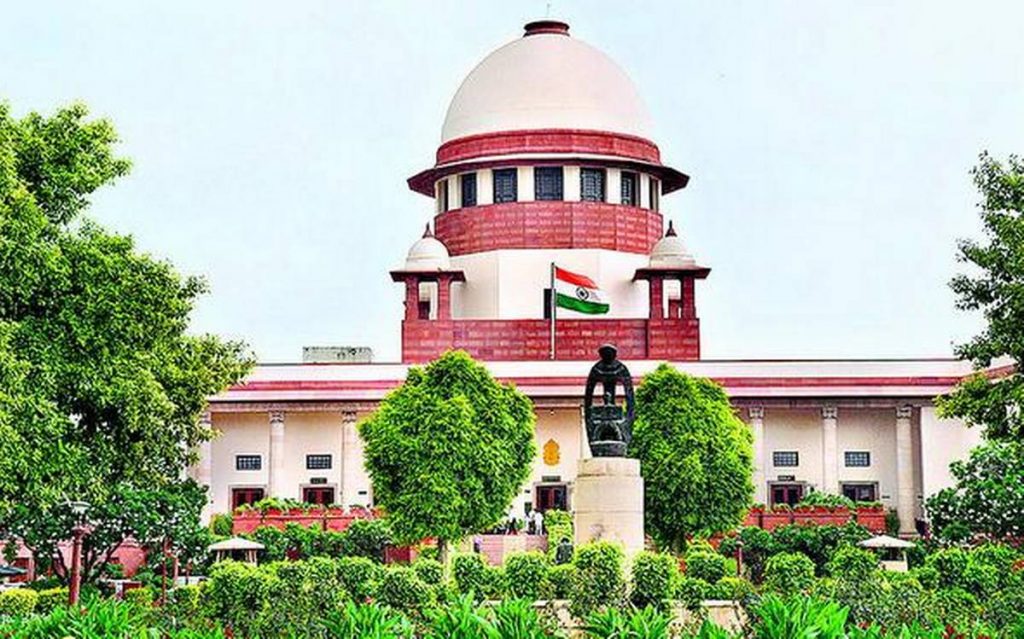Manas Dasgupta
NEW DELHI, Aug 17: The Supreme Court on Tuesday issued pre-admission notice to the Centre on petitions seeking an independent inquiry into allegations of the government misusing Israeli spyware Pegasus to snoop on some citizens even while assuring the administration that the apex court would not insist on it to disclose anything which might compromise national security.
The apex court was hearing a bunch of petitions including one filed by the two veteran journalists N Ram and Sashi Kumar that the government that the government or any of its authorised agencies had used Pegasus to snoop on journalists, activists, dissenters, parliamentarians, ministers and other citizens.
After issuing the notice, a bench of Chief Justice of India NV Ramana, Justices Surya Kant and Aniruddha Bose said it would consider the further course of action, including the formation of a committee to inquire into the allegations as offered by the centre, in due time. The court listed the case for hearing after 10 days.
The notice was issued after the government, represented by Solicitor General Tushar Mehta, stood firm by its two-page affidavit denying “all and any” allegations. Mehta said any revelation about any software allegedly used by government to counter terrorism would compromise national security.
“They [petitioners] want us to say whether Pegasus was used or not… It is nobody’s case that interception is done by governments for the purpose of national security. Softwares are used… They want to know which software is used… No government will say which software is used because if we divulge, terrorists may take advantage. Which software is used or not is a matter of national security. It cannot be a matter of public debate,” Mehta made the opening statement at the start of the virtual hearing.
Mehta told the apex court, “These software are purchased by every country and the petitioners want it to be divulged if the software has not been used. If we divulge this then the terrorists can take preventive steps. These are national security issues and we cannot hide anything from the court.”
The Solicitor General clarified that the government was not refusing to reveal anything to anybody at all. “We are just saying we will not reveal it publicly,” Mehta said. He referred to the affidavit filed by the government which agreed to the formation of a Committee of Experts to inquire into the reports of Pegasus snooping.
“As a responsible government, we are submitting that we will form a committee of neutral experts, whose report will be placed before the Supreme Court… I repeat, it is not my case that I will not divulge anything. All will be revealed before the committee… Let me do that before a committee… Permit us to form a committee… We will place its report before the Supreme Court itself,” Mehta urged the court.
“We can divulge this to a committee of experts and it’ll be a neutral body. Would you as a constitutional court expect such issues to be divulged before court & put up for public debate? Committee will place its report before court. But how can we sensationalise the issue.”
Justice Kant said there was no question of compromising national security. “We are not going to ask you to divulge anything that will harm the defence of the nation… We are extremely reluctant to say anything on that. But the question here is that there are some persons of eminence who have come here, saying there has been interception of their phones… That can be done, but with the permission of the competent authority… So, we are issuing simple notice… Competent authority can say to what extent what can be done or what decision is to be taken,” Justice Kant explained.
Senior advocate Kapil Sibal, who appeared for veteran journalists Ram and Sashi Kumar, said “the security of the State is as important to the citizen as it is to the State.” Sibal had rebutted the government petition on Monday on several counts including that it was filed by the Ministry of Electronics and Information Technology and not the Ministry of Home Affairs which authorised surveillance under the law and that the affidavit skipped the part on whether the government or its agencies used Pegasus at all. He had stated that if the government did not get the time to study the petitions and reply to them, as it had stated in its two-page brief affidavit, the court should give them the time. The senior lawyer countered that the affidavit did not even say whether the “facts and contentions” in the petitions were right or wrong.
“Finally, and most importantly, we do not want a government who might have used Pegasus to form a Committee of Experts to inquire into the issue. As far as I am concerned, the issue is simple. If the government says they have used the Pegasus, there is no need for a committee. If the government says they have not used the Pegasus, then too, there is no need for a committee,” Sibal had reasoned.
Mehta had explained that the offer to form a Committee of Experts was a “bona fide gesture” from the government to clear the air. The law officer had even invited the Supreme Court to frame the terms of reference of the committee.
Several petitioners have moved the court seeking a probe into the findings of a global media investigation, that the spyware may have been used to infiltrate phones used by a wide range of targets including critics of the government. The Israeli firm has said it licenses Pegasus only to “vetted governments” for use against criminals and terrorists.

